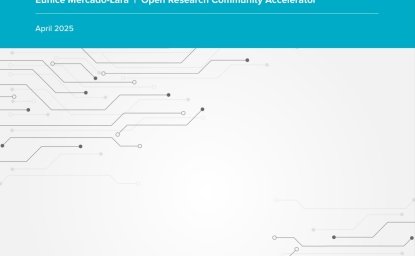Who Will Own The Secrets In Our Genes? A U.S. – China Race in Artificial Intelligence and Genomics


The United States has been precision medicine’s worldwide champion, conducting most of the research that first deciphered our genome about fifteen years ago. This could change with China’s heavy investment and capacity-building in the increasing convergence of artificial intelligence (AI) and new genetic technologies. This golden combination of AI and genomics data has the potential to drive precision medicine to new heights by helping unravel the mysteries of why our bodies react to different chemicals, viruses, and environments, thus recommending the best medicines and treatments. As China establishes itself as a real competitive force in precision medicine, the U.S. needs to anticipate and understand what this competition means in terms of ownership of medical innovation and personal data protection. Which nation will be the first to own and patent cancer diagnostics and therapeutics vital to our future? Can our science policy and diplomacy encourage U.S.-China collaborative research efforts? The stakes are also high in terms of biosecurity, as genetic and computing research is inherently dual-use and therefore a strategic piece in a nation’s security arsenal. While it will be crucial to leverage genomic data for future health, economic and biodefense capital, these data will also have to be well managed and protected. How do we foster, at a science policy level, a U.S.-China dialogue, involving norms and values, about personal data-sharing and protection? In life sciences and genomics, the answer will require creativity and anticipation with the goal of building collaborative practices instead of walls. Which political and economic incentives can help us make this commitment to collaboration a win-win game for both nations?
Authors

Formerly European Commission, Directorate-General for Research and Technological Development, Directorate on Science, Economy and Society

Science and Technology Innovation Program
The Science and Technology Innovation Program (STIP) serves as the bridge between technologists, policymakers, industry, and global stakeholders. Read more

Explore More
Browse Insights & Analysis
360° View of How Southeast Asia Can Attract More FDI in Chips and AI


